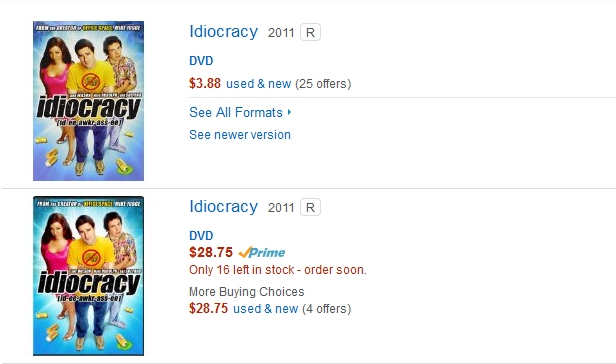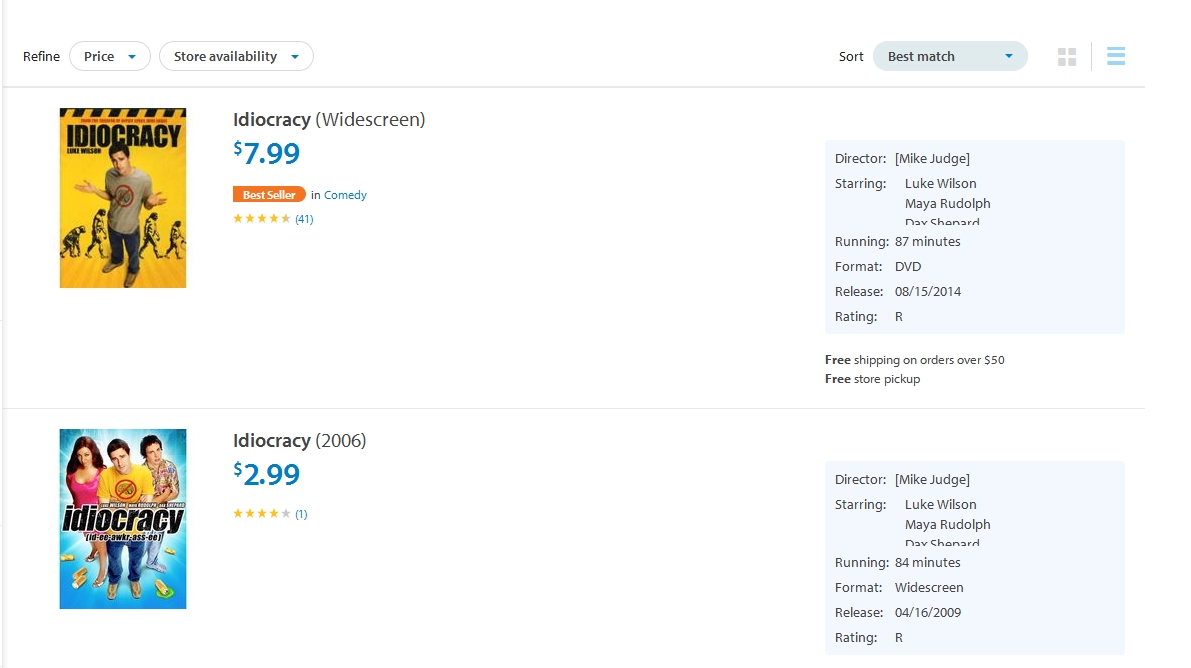A piece in the Wall Street Journal about Congress’s rush to an Internet sales tax and its impact on small Internet businesses, which will be as awesome as ObamaCare:
Mr. Enzi’s Marketplace Fairness Act discriminates against Internet-based businesses by imposing burdens that it does not apply to brick-and-mortar companies. For the first time, online merchants would be forced to collect sales taxes for all of America’s estimated 9,600 state and local taxing authorities.
New Hampshire, for example, has no sales tax, but a Granite State Web merchant would be forced to collect and remit sales taxes to all the governments that do. Small online sellers will therefore have to comply with tax laws created by distant governments in which they have no representation, and in places where they consume no local services.
9,600? No, sir, that’s an estimated 9,600 at the time of the estimate. Legislatures, county councils, city boards, and citizen initiatives create Community Improvement Districts almost daily that make that patchwork of tax rates even more diffuse:
The developers behind a proposed $78.5 million retail and office complex in southwest Springfield on Monday made their pitch to City Council for creation of a special tax district to help foot part of the bill.
Developers Tom Rankin and Jeff Childs want to use a Tax Increment Financing district to help pay part of the costs related to their 96-acre Springfield Plaza development, which would wrap around the Walmart Supercenter at Sunshine Street and West Bypass.
. . . .
In order to speed up the reimbursement, the city also is requiring the developers to pursue the creation of a Community Improvement District, which would allow an additional sales tax of up to 1-cent to be charged in the district to help pay off the improvements more quickly.[emphasis added]
Got that? An Internet online retailer selling office supplies to a CPA or hair salon located in this particular strip mall must collect that additional half cent sales tax for the new CID that did not exist yesterday (and technically does not exist today, but will sometime when the Springfield City Council rolls over for the developer and when the development is built). Unless, of course, a particular retailer is exempt from the CID as may happen from time to time when the city rolls over for that individual retailer in a development:
No more whispering or passing notes. Menards officially is interested in Springfield.
“I guess (this is) an official acknowledgement,” company representative Tyler Edwards told City Council on Tuesday.
Edwards said the Eau Claire, Wis.-based company plans to employ about 150 people at a 162,000-square-feet store to be located in developer Paul Larino’s Hickory Hills Marketplace.
But the deal is contingent on council approval of a bill removing the home improvement store, which also sells groceries, from the Hickory Hills Community Improvement District.
Or, as a citizen’s task force of citizens hand-picked to back sales tax increases recommends, a couple of targeted sales taxes upcoming in Springfield:
After considering several options for funding, a majority of the group’s members recommended a two-pronged funding approach that includes:
• Reinstating an 1/8-cent county sales tax that expired in June. Part of a larger sales tax for parks, the 1/8-cent tax had funded stormwater projects in Springfield and the county. The task force recommends the tax be sent to voters for renewal every seven years with a list of flood control projects and goals for the term.
• Passing a new, 1/10-cent stormwater sales tax to help fund ongoing water quality compliance and the gradual replacement and repair of existing stormwater infrastructure.
Like other existing sales taxes, the new taxes would be paid by consumers on most goods bought within the city’s boundaries.
Note that that article refers to the sunsetting of a sales tax, which is something else Internet retailers would have to account for under the penalty of law. Collect a sunsetted tax an extra week, get into trouble. Fun for everyone (who is not a small Internet retailer).
Maybe an Internet sales tax might have been workable fifteen years ago, but the profusion of special local sales taxing gimmicks has rendered it completely unworkable now. Online retailers or their newly more expensive payment processing vendors would have to somehow keep abreast of these developments, new taxing authorities, and siloed taxes across counties like the new Arch tax in the St. Louis metropolitan area, and they would need to constantly, daily update their tax levying to reflect new uses and abuses in every county, city, and town in the country.
Or, unexpectedly, go out of business. Which will mean the Internet sales tax revenues will be strangely less than hoped, and the well-positioned Internet and brick-and-mortar giants will reap the rewards.
In a related note, the St. Louis Post-Dispatch recently ran a story about the continuing upward ratchet of sales taxes:
When St. Louis and St. Louis County residents went to the polls this month, they took the latest step in a long trend around here:
The steady rise of sales taxes.
The “Arch tax,” as it is known, will add a sliver of a cent to each dollar spent on meals and clothes, furniture and electronics, starting Oct. 1. Three-sixteenths of a penny doesn’t sound like much, but the vote is one of many small decisions that have people here now paying some of the highest sales taxes in the United States.
While rates vary across the region — by county, by city, by shopping plaza, sometimes even by building — the trend everywhere is up. The average sales tax rate in St. Louis County is now 8.2 percent, headed to 8.4 percent when the Arch tax starts. That’s up two full points from the 6.4 percent rate in 1997. The growth has been even faster in the city of St. Louis, where tax on a cup of coffee or a meal out can now run as high as 12 percent, after the city’s 1.5 percent restaurant tax.
Holy cats, I can’t believe the Post-Dispatch spotlit that. But they did, and good on them.
Remember that every sales tax they mention here (except the special restaurant and hospitality bits) would apply to Internet retailers. And I guess the courts would eventually have to sort out how online orders for food delivery would fall under the new rubric.
Instapundit links to the White House’s endorsement of the plan, which cites that small brick-and-mortar retailers as an excuse for passing it. Which will last until such time as the regulatory regime comes stalking their little eBay storefronts and they’re suddenly competing against a retailer elsewhere whose tax burden is 2% lower in Texas.
At any rate, make sure your legislators in Congress know what a regulatory burden this will impose on Internet retailers and to expect the unintended consequences–namely Internet businesses shutting down–should they too hastily pass this monstrosity.






